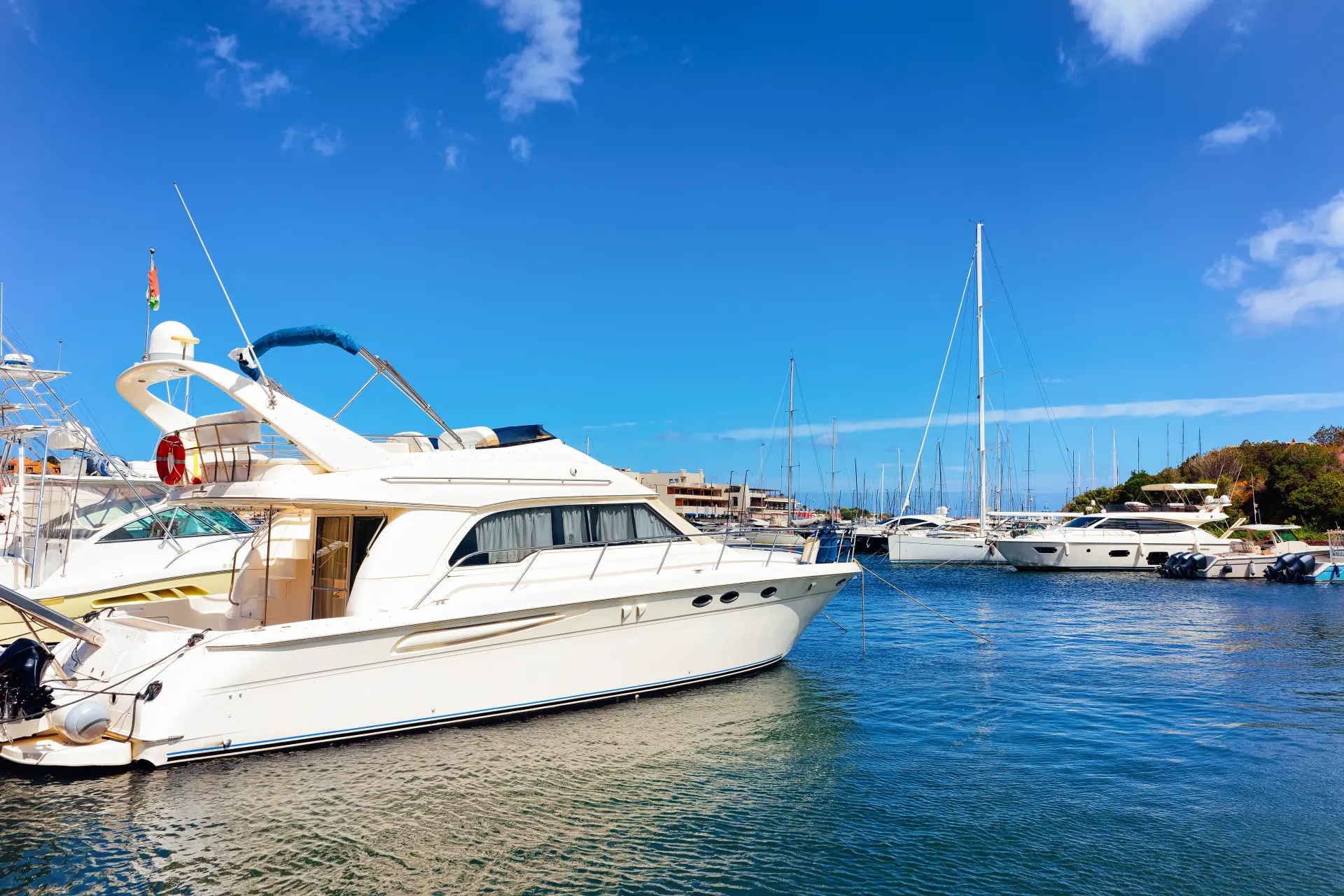New to yacht ownership or just starting to explore engine care? This beginner’s guide to yacht engine maintenance breaks down the basics of yacht engine maintenance, from understanding key parts to checking oil and cooling systems. Stay safe, save money, and keep your engine running smoothly with these simple steps.
A Beginner’s Guide to Yacht Engine Maintenance
Why Yacht Engine Maintenance Matters
Yacht engine maintenance is very important if you want to keep your boat running smoothly and safely. Just like a car, your yacht has an engine that needs looking after.
Without proper care, your engine could break down, which might leave you stuck out at sea – and that’s not something anyone wants!
Taking care of your engine helps it last longer. It also makes sure it runs well, which saves you fuel and money. A well-looked-after engine is also safer for you and your passengers. It’s much better to stop problems before they start than to deal with them when they happen.
Even small problems can turn into big ones if you don’t fix them quickly. That’s why it’s good to check the engine often, clean it, and listen for any strange sounds. If you do these things, you can spot trouble early.
Another reason to do maintenance is to keep your yacht ready to go. You might want to take a trip one day, and if your engine hasn’t been checked in a while, it might not start. That could ruin your plans.
Looking after your engine doesn’t have to be hard. With some simple steps and a bit of time, you can keep it in great shape for many years.

Getting to Know Your Engine: The First Step to Good Maintenance
Before you can look after your yacht engine, it helps to know how it works. Don’t worry—you don’t need to be an expert. You just need to learn the basics. When you understand your engine better, it’s easier to spot problems and take care of them early.
Read the Owner’s Manual
The owner’s manual is a small book that comes with your engine. It has a lot of useful information in it. It tells you what kind of oil to use, how often to check parts, and how to do simple maintenance jobs.
Try to read it from beginning to end. If you don’t understand something, ask someone who knows about engines or look it up online. Always keep the manual in a safe, dry place on your boat so it’s there when you need it.
Learn the Key Parts
Here are some important engine parts and what they do:
- Engine block: This is the heart of the engine where most of the work happens.
- Oil dipstick: Helps you check if there’s enough oil in the engine.
- Fuel filter: Stops dirt and water from getting into the fuel system.
- Air filter: Keeps dust and dirt out of the engine.
- Coolant tank: Holds the liquid that stops the engine from overheating.
- Belts and hoses: These move things and carry fluids around the engine.
Try to find each of these parts in your own engine. You can even label them with waterproof stickers to help you remember.
Use Your Senses
Look, listen, and smell. If something looks rusty or broken, makes strange sounds, or smells like burning, it might be a problem. Your senses can help you catch issues early before they become serious.
Keep a Maintenance Log
A log is a notebook where you write down every time you check or fix something on the engine. Write the date, what you did, and if anything looked odd. This helps you remember what’s been done and when the next check is due.

Checking and Changing Engine Oil
Oil is very important for your yacht’s engine. It helps all the moving parts work smoothly and keeps the engine from getting too hot. Without enough oil, or with dirty oil, the engine could get damaged.
How to Check the Oil
Start by making sure the engine is off and cool. Find the oil dipstick—usually it’s a small stick with a loop handle. Pull it out, wipe it clean, put it back in, then pull it out again to check the level. The oil should be between the “low” and “full” marks. It should also be a clear brown colour. If it looks black or smells burnt, it’s time to change it.
When to Change the Oil
It depends on how often you use your yacht. A good rule is to change the oil after every 100 hours of use or once a year—whichever comes first. Always use the type of oil your engine manual says is best.
How to Change the Oil
Changing oil isn’t too hard, but it can be messy. You’ll need a container to catch the old oil, a new oil filter, and fresh oil. Make sure to properly get rid of the used oil—don’t pour it down the drain!

Inspecting the Cooling System
The engine in your yacht can get very hot. That’s why it needs a cooling system. This system uses water and a special liquid called coolant to stop the engine from overheating.
What Does the Cooling System Do?
It moves water through the engine to take away the heat.
Some systems use seawater, and some use a mix of water and coolant. If this system breaks, your engine could overheat and stop working.
How to Check the Coolant Level
Look at the coolant tank. There should be marks that show the correct level. If it’s too low, add more coolant – not plain water.
Make sure the engine is cool before you open the cap, or hot steam might come out and burn you.
Check the Hoses and Clamps
Hoses carry the coolant through the engine. Make sure they’re not cracked or leaking. The metal clamps that hold them should be tight and not rusty.
If anything looks damaged, it’s best to replace it.
Flush the System Now and Then
Over time, the cooling system can get clogged. It’s good to flush it out once a year, especially if you use the yacht a lot.
This helps keep everything flowing and clean.
When to Call a Professional for Repairs
Even if you’re good at checking your engine, there are times when you should ask a professional for help. Some engine problems are too tricky or dangerous to fix on your own. It’s better to be safe than sorry.
Unusual Noises or Vibrations
Engines usually make a steady sound when they’re running well. If you suddenly hear knocking, grinding, squealing, or any loud clunks, stop the engine. The same goes for strange shaking or vibrations. These could mean something inside the engine is loose or broken. A mechanic can open the engine safely and repair it before it gets worse.
Leaks That Won’t Stop
Sometimes, a few drips of water or oil are normal. But if you see a puddle growing, or liquid keeps dripping every time you run the engine, you should call someone to look at it. Leaks can lead to overheating, loss of oil pressure, or even engine failure. Professionals have the tools to find where the leak is and fix it properly.
Smoke, Steam, or Burning Smells
Seeing smoke, steam, or smelling burning is never a good sign. White smoke could mean coolant is leaking into the engine. Black smoke may mean the fuel is not burning correctly. A strong burning smell could mean parts are getting too hot. Turn off the engine and call a mechanic as soon as possible.
Electrical Issues
If the engine won’t start, the battery keeps going flat, or the dashboard lights don’t work properly, there may be an electrical problem. These issues can be hard to find and even dangerous. Professionals use special testers to check the wires, battery, and switches safely.
You’re Not Sure What’s Wrong
If something just doesn’t feel right or the engine is acting strangely, it’s okay to get help. You’re not expected to know everything. It’s better to call someone early than to wait and risk bigger damage.
Tip: Try to find a marine mechanic with experience working on your type of engine. Keep their phone number in your yacht’s logbook, just in case!
Need professional yacht engine repairs in Southampton, Portsmouth, Bournemouth, Poole, Worthing or Brighton? Click below to find trusted yacht engine specialists and marine maintenance near you.

